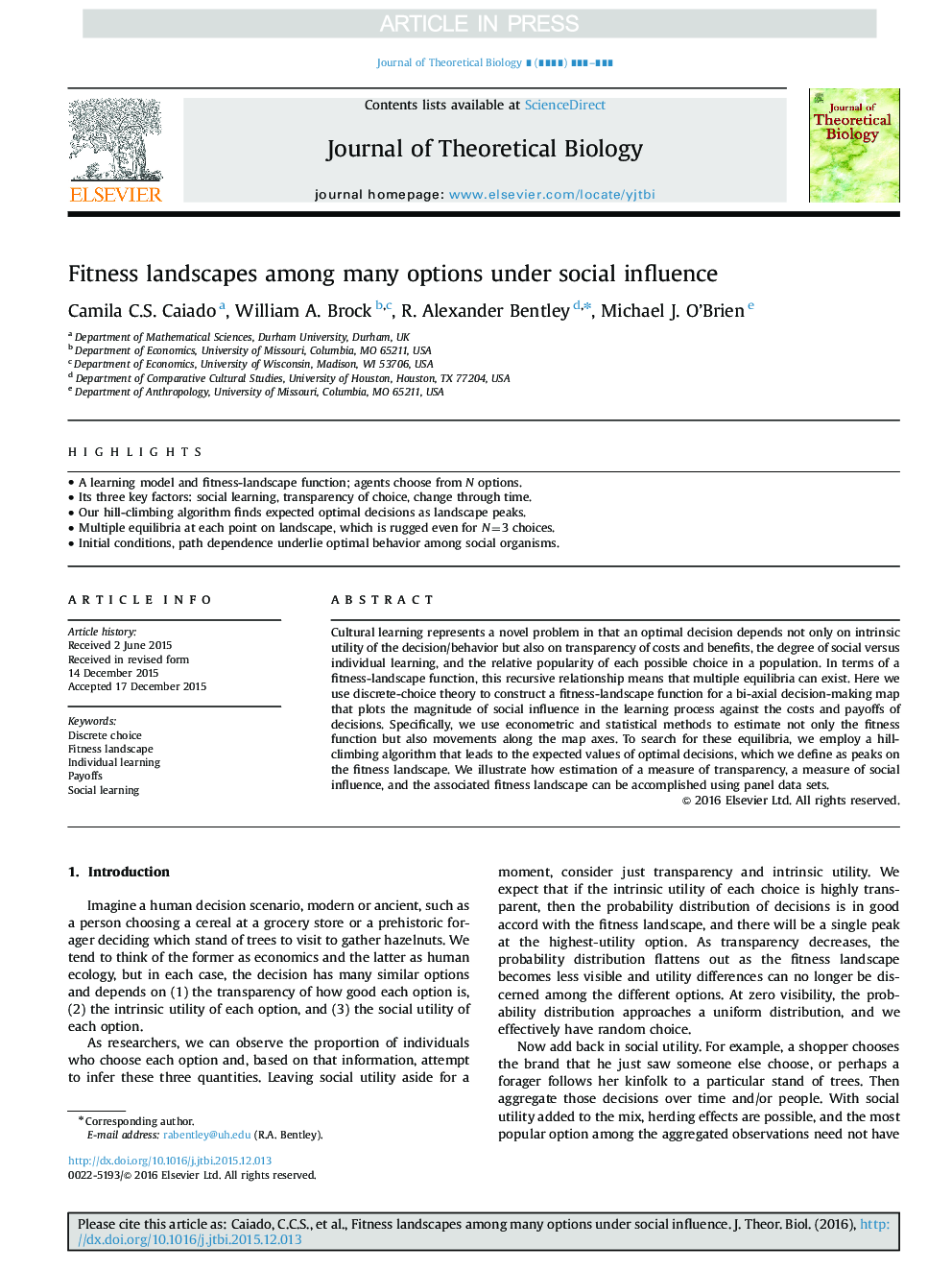| Article ID | Journal | Published Year | Pages | File Type |
|---|---|---|---|---|
| 6369111 | Journal of Theoretical Biology | 2016 | 12 Pages |
Abstract
Cultural learning represents a novel problem in that an optimal decision depends not only on intrinsic utility of the decision/behavior but also on transparency of costs and benefits, the degree of social versus individual learning, and the relative popularity of each possible choice in a population. In terms of a fitness-landscape function, this recursive relationship means that multiple equilibria can exist. Here we use discrete-choice theory to construct a fitness-landscape function for a bi-axial decision-making map that plots the magnitude of social influence in the learning process against the costs and payoffs of decisions. Specifically, we use econometric and statistical methods to estimate not only the fitness function but also movements along the map axes. To search for these equilibria, we employ a hill-climbing algorithm that leads to the expected values of optimal decisions, which we define as peaks on the fitness landscape. We illustrate how estimation of a measure of transparency, a measure of social influence, and the associated fitness landscape can be accomplished using panel data sets.
Related Topics
Life Sciences
Agricultural and Biological Sciences
Agricultural and Biological Sciences (General)
Authors
Camila C.S. Caiado, William A. Brock, R. Alexander Bentley, Michael J. O'Brien,
